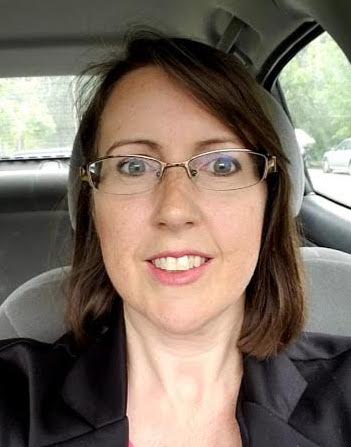Knowing When to Evacuate
by Laura Ochs Wibberding | 24 August 2020 |
It’s fire season again. I feel this vividly: I’m writing from my in-laws’ guest room, where we fled when the evacuation order came. A suitcase sits in the corner, where I packed a few essentials that might become my entire wardrobe, depending on which way the wind blows.
This was the first time, in my four seasons in northern California, that the evacuation was mandatory. In fact, it was only the second time we left our home. The other two years we could wait it out, avoiding the smoke indoors, watching fire maps and willing the containment numbers to creep higher.
It’s different when we leave. Both times I had the helpless feeling of leaving my household to burn if it would. Choosing what to take is paralyzing. We were miles down the road before I remembered the wedding pictures. Everything I looked at seemed small, insignificant. It would be easy to replace. Taken together, however, they were my connections to the past, the life I created, the bonds to my identity. And I couldn’t take it all, so I took very little.
To walk away from that, even guessing I’ll come back, is an existential exercise. What am I, if this is gone? What would my life be like, without these tethers? It’s a dizzying mix of grief and potential, that act of shutting the door and driving away.
So far, of course, the question goes unanswered. So far we have always come back. But the questions linger. On the one hand, the annual trauma of fire season is exhausting. I wonder if living here is worth the toll. On the other, there is good in being shaken up. The tether of my stuff has as much downside as up. Fire season brings stress, but it also forces us to think of change. It makes me pick my head up and look beyond what’s here.
And here’s where I must step carefully, because it’s untenable to say that fire season is a good thing. I will not claim, in the face of all those homes and even lives lost, that the tragedy is a blessing. It doesn’t turn good, even when I find good in the corners.
But there are corners in our tragedies. The chance for self-understanding lurks in the shadows of our losses.
Fire season this year has come during a world-wide pandemic, and in the midst of a civil rights movement. It hits as we spin through a chaotic political storm in the US. In a sense, we are all going through a vast and constant fire season together. We all are being passed from one stressor to another. We are all unsure if the reality—and the identity—we remember will be there to come back to. It’s a much-stated but under-felt reality.
And as Adventists, there’s another layer, too. Deep down, we suspect it could be the time. Of course we’ve seen the world stumble before—world wars, revolutions, and plagues—and then find some kind of equilibrium again. But whether or not you subscribe to the old Sunday-law-persecution timeline, we all suspect one day we won’t catch our balance. However it happens, one day it will happen. One of these days, human history will turn apocalyptic. The closer the disasters come to our own homes, the easier it is to imagine that time is now.
Right now, in my in-laws’ guest room, I don’t know what’s next. Like the fire near my home, I don’t know which way the wind will blow. Fire season doesn’t offer us any certainty. But it does come with opportunity.
Being untethered is terrifying. But it lets us move in ways we couldn’t before. Churches are forced into cyberspace, and members into our own neighborhoods. The news cycle pushes me to see my neighbors, to look injustices in the eye, and to engage. I have a chance to do something else. We all have a chance to be something different, possibly something better.
We are all still trying to lift the load of grief that comes with our collective fire season, I know. But I hope that you find the gifts, hidden in the shadows of these tragedies. I hope that our churches will catch the opportunities as they pass by. Change is possible. It might even be unavoidable. Let our hope season our anxiety. Let our imaginations temper our grieving.
May we know when it’s time to evacuate.
 Laura Ochs Wibberding is an adjunct professor of religion at Pacific Union College in Angwin, California. Right now she and her family are sheltering with the family of her husband, Jim, in Oregon. She blogs at theotheradventisthome.com.
Laura Ochs Wibberding is an adjunct professor of religion at Pacific Union College in Angwin, California. Right now she and her family are sheltering with the family of her husband, Jim, in Oregon. She blogs at theotheradventisthome.com.




